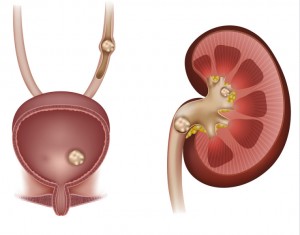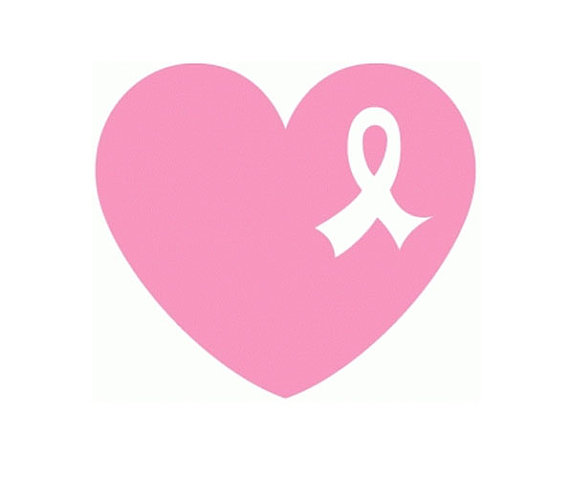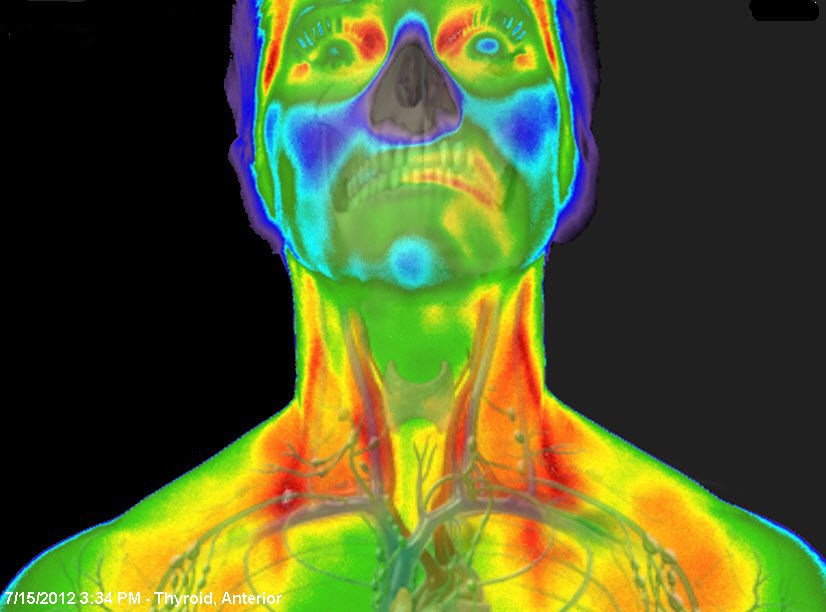Passing kidney stones is known to be extremely painful, which is why they can easily put someone out of work, ruin his or her week, and make it hard to go about normal activities. Of course, you want to diminish your kidney stone symptoms quickly because they’re agonizing and uncomfortable to live with, but perhaps even more importantly is because untreated kidney stones can at times cascade into worsen kidney function all together.
Kidney stones are one of the most common disorders of the urinary tract, and every year more than a million people visit their doctors in the U.S. alone, in order to find help relieving their kidney stones. It’s estimated that 1 in 10 people will deal with a painful kidney stone at one point in their lives. Oxalates can be one of the main contributing factors.
What is Oxalate?
Oxalates come from foods we eat, like many things in life moderation is the key; our body has the ability to manage mild levels of oxalates. But if oxalate levels build up too high we are certain to suffer consequences in our health and our genetic pathways.
While there are some rare, genetic causes for having high oxalates, the vast majority of people with oxalate problems cannot blame it on their genes. The main reason oxalates become a problem is that they leak in through a dysfunctional gut. Since most Americans have a leaky gut of some kind, more and more people are developing oxalate-related issues. The worst part is that those who have an oxalate problem likely have no idea. Oxalates aren’t something most doctors are thinking about and of course we don’t hear much about them in the media or casual conversations. But if you ask a person who has just had to deal with a painful kidney stone, they will tell you just how big of a problem oxalates can be!
Oxalates and Leaky Gut
Poor digestion is the main reason people develop oxalate problems. And without a doubt a poor functioning gallbladder is the number one reason we develop oxalate problems. To illustrate the connection between gut dysfunction and oxalates, we start by looking at how oxalate levels rise after bariatric surgery. Research has shown that individuals who compromise their upper GI tract with bypass surgery develop hyperoxaluria – excess oxalates in the blood and urine.1 This bariatric surgery oxalate relationship is very easy to understand. When we damage the stomach and gallbladder with an aggressive surgery, it begins to impair digestion. And as digestion becomes more dysfunctional, more oxalate problems develop. Simple as that.
Oxalates are found in many common foods such as caffeine, chocolate, nuts and seeds, and many varieties of fruits and vegetables. Oxalates are also found in the connective tissue of animals so human omnivorous eating animal protein at meals will undoubtedly be consuming some oxalates as well. When we eat our kale salads or drink our spinach smoothies we are getting the nutrients and antioxidants in those plants; but we are also getting the oxalates. Most people don’t realize that by juicing every day that they may be overdosing on oxalates. But don’t worry and think that these foods are bad for you.
Foods that contain oxalates are some of the healthiest foods we can eat – spinach, blueberries, kale, etc. As long as our digestion is working properly, producing stomach acid and releasing enzymes and bile, the oxalates in food are not a problem. As long as our gallbladder is working well, we can eat food with oxalates and have no worries that we will develop an oxalate problem. The problem with oxalates arises because we don’t exactly have healthy gallbladders in this country.
Taking a functional medicine approach, we focus on a gut healing program and a nutritional plan that still focuses on healthy food choices that may still include oxalate foods. If you focus on healing and sealing the leaky gut and improving digestion and gallbladder function the kidney stones dissolve and if you keep the gut healthy you can usually live a life kidney stone free.
For the majority of people passing kidney stones successfully happens over the course of waiting a few days (although likely with lots of pain in the process), but there are several ways you can speed this removal up and then prevent kidney stones from returning. Depending on your situation, you may need nothing more than to take pain medication and drink lots of water to pass a kidney stone. In other instances — for example, if stones become lodged in the urinary tract or cause complications — surgery may be needed.
- Stay Hydrated
Not drinking enough fluids can put you at risk for kidney stones, especially if you exercise a lot, live in a hot climate, drink diuretic beverages and sweat a lot. Drinking enough water and plenty of hydrating fluids (like herbal tea, sparkling water or fruit-infused water) is even more important if you have a sodium-heavy diet. While fluid intake varies depending on your size, diet, location and how much you work out, try to drink about eight ounces every hour ideally. - Eat a Nutrient-Dense Diet
If you eat a generally poor diet — one low in nutrients, electrolytes, antioxidants and a mix of carbs, healthy fats and appropriate amounts of protein — you’re at an increased risk for developing kidney stone symptoms. Eating a very salty or high-protein diet, above your actual protein needs or about 30 percent of your diet, can result in an increase of ammonia in the urine.
Focus on fresh foods, or “eating the rainbow,” in order to balance the body’s pH balance and prevent too much acidity
Here are some of the top foods for helping prevent kidney stones:
- Fresh vegetables and fruit— Some research shows that people who follow a mostly plant-based diet, low in dairy products and meat, tend to have fewer kidney stones than people who eat lots of processed meat, packaged sodium foods and conventional dairy. Fresh foods that promote healthy kidney function include bananas, leafy greens of all kinds (and fresh-squeezed veggie juice), sprouted legumes, sprouted grains, fish and small amounts of pasture-raised poultry.
- Vitamin E-rich foods – Berries, olive oil, almonds, avocado and butternut squash are a few of the best sources of antioxidant vitamin E, which helps balance levels of oxalates and other toxins in the body, while also preventing mucus membrane damage, thereby reducing the risk of stone formation.
- Alkaline Foods- it might seem counterintuitive, but foods that are acidic in nature and help balance the body’s pH level, like lemon or apple cider vinegar, can help the body pass kidney stones. Mix a small amount with water, or add some to a smoothie with raw honey.
- Magnesium and potassium rich foods— Consuming plenty of magnesium and potassium can help balance calcium levels in the body, so include lots of leafy green veggies, cruciferous veggies, melon, bananas and avocado in your diet.
- Sprouted grains (as opposed to refined grain products) — Sprouting grains reduces their anti- nutrient content, making their nutrients more digestible.
On the other hand, here are some foods that can contribute to kidney stone symptoms:
- Sugary foods — There’s some evidence that a sugar-heavy diet can worsen kidney stones. Make sure to limit the amount of packaged sugary snacks you eat, sweetened drinks (especially if they’re carbonated), dairy and even fruit if it seems to worsen your symptoms.
- Regular un-sprouted grains or refined grains— Most grain products (including flour and products like cereal, bread, rolls, cake, etc.) contribute to kidney stones because they have high levels of empty nutrients including phytic acid.
- Foods naturally high in oxalate acid — While all fruits and vegetables generally offer a variety of electrolytes and nutrients, some that can increase oxalate buildup in people prone to kidney stones include: spinach, rhubarb, tomatoes, collards, eggplant, beets, celery, summer squash, grapefruit/grapefruit juice, sweet potatoes, peanuts, almonds, blueberries, blackberries, strawberries, parsley and cocoa.
- Processed meats and cold cuts— Processed meat can cause the body to excrete calcium, which means more is sent to the kidneys where it can build up and form stones.
- Zinc foods— Some research has found that people who consume more zinc (from foods like pumpkin seeds, cashews, meat or spinach) can increase their odds of having kidney stones.
- Too much vitamin C —While vitamin C has numerous benefits, too much might worsen kidney stones. Research suggests that more than three to four grams of vitamin C per day (such as taking high doses in supplement form) might aggravate kidney stones by contributing to oxalate buildup.
- Remove caffeine and alcohol— Both are dehydrating and can be difficult to digest, which can make kidney stones worse.
Most importantly start on a gut healing program
In functional Medicine healing the gut is the first step to improving overall health, wellness and vitality. To reduce your risk of Kidney stones this must be part of your program. Using this simple 4 step approach you will start the healing process.
The 4 R Program
- Remove the bad
The goal is to get rid of things that negatively affect the environment of the GI tract such as inflammatory foods, infections, and gastric irritants like alcohol, caffeine or drugs. Inflammatory foods such as gluten, dairy, corn, soy, eggs and sugar can lead to food sensitivities. Infections can be from parasites, yeast or bacteria. Removing the infections may require treatment with herbs, anti-parasite medication, anti-fungal medication, anti-fungal supplements or even antibiotics. - Replace
Replace the good. Add back in the essential ingredients for proper digestion and absorption that may have been depleted by diet, drugs (such as antacid medications) diseases or aging. This includes digestive enzymes, hydrochloric acid and bile acids that are required for proper digestion. - Reinoculate
Restoring beneficial bacteria to reestablish a healthy balance of good bacteria is critical. This may be accomplished by taking a probiotic supplement that contains beneficial bacteria such as bifidobacteria and lactobacillus species. Usually anywhere from 25 -100 billion units a day. Also, taking a prebiotic (food for the good bacteria) supplement or consuming foods high soluble fiber is important. - Repair
Providing the nutrients necessary to help the gut repair itself is essential. A great place to start is with L-glutamine, an amino acid that helps to rejuvenate the gut wall lining. Also cooking with bone broth or making bone broth smoothies is another option. Other key nutrients include zinc, omega 3 fish oils, vitamin A, C, E as well as herbs such as slippery elm and aloe vera.
Supplements that Can Help Reduce Kidney Stones
Several supplements that are beneficial if you regularly develop kidney stone symptoms include, (Nutraceutical Supplements are always to be purchased from your practitioner, avoiding over the counter untested and non-certified products):
- Magnesium: balances other minerals in the body and prevents magnesium deficiency or electrolyte imbalances. Take about 250 milligrams two times daily in capsule form or as part of a mineral powder supplement.
- B vitamins: B vitamins help reduce calcium and oxalates from accumulating. Take a daily B complex vitamin, especially one that contains at least 50 milligrams of Vitamin B6
- Antioxidant supplement or multivitamin containing vitamin E: also useful for lowering inflammation and reducing calcium and oxalate buildup. Aim to get at least 400 IU of vitamin E daily.
- Cranberry extract: reduces risk for developing urinary tract infections and balances calcium levels. Take 400 milligrams twice daily.
- Aloe Vera juice/gel: reduces crystallization of minerals within the urinary tract. Take 1/4 cup daily.
- Kidney Complete: is a natural food liquid supplement made of a unique combination of foods this is a kidney stone buster it will break it up and dissolve it.
- Essential Oils: certain essential oils help the body detoxify itself of built-up heavy metals, toxins and access minerals, including lemon, orange, lime or helichrysum essential oil. Take citrus oils either internally (such as adding two drops of 100 percent pure oil to your water twice daily) or topically by combining several drops with a carrier oil (like coconut oil) and massaging it into the lower abdomen twice daily. Helichrysum oil should only be used on the skin and not ingested.
One thing to avoid is taking calcium supplements or antacids, since these can make matters worse. It’s now believed that calcium rich foods, themselves don’t necessarily contribute much to kidney stones, but calcium from supplements might be linked to increased risk. It’s a better idea to get calcium naturally from foods (like raw dairy products, yogurt, kefir, beans and leafy greens) or speak to your doctor about what you can do if you’re worried about your calcium levels.
If you need help with kidney stones, or kidney stone prevention, Forum Health Clarkston can develop a customized nutritional program including targeted supplementation.
Taking a proactive approach to prevent illness is key. Live in health and wellness and you will avoid sickness. If we give our body the proper environment it will heal. Healthy gut is a healthy immune system and that is what it takes to fight off disease.
Forum Health Clarkston
248-625-5143
Resources:
Dr Axe what is causing your kidney stones
Amy Meyer love your gut
American Urology Association
Common Surgical Procedures. The University of Chicago Medicine web site
Kumar R, Lieske JC, Collazo-Clavell ML, et al. Fat malabsorption and increased intestinal oxalate absorption are common after Roux-en-Y gastric bypass surgery. Surgery. 2011 May;149(5):654-61.







